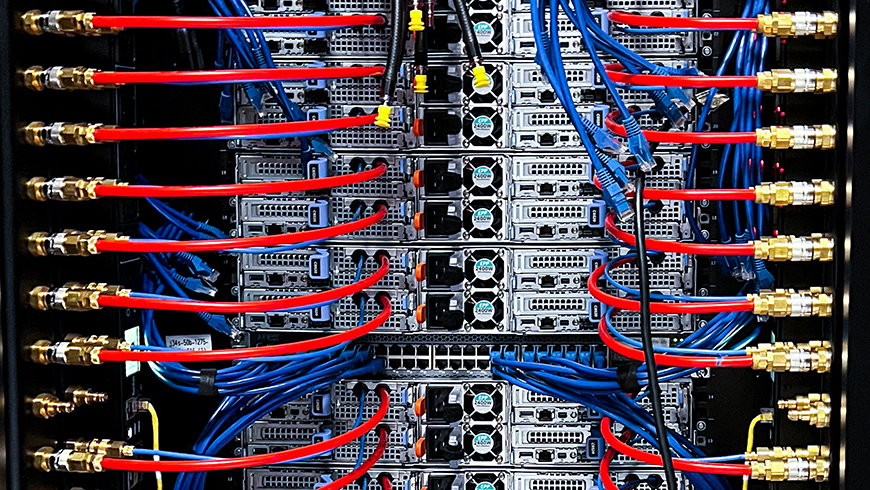Launch of the Horizon Europe project HEATWISE
Computers heat buildings

NEST as a pilot plant
Computing power yields hot water
In addition to optimizing energy management, the project is also investigating the use of innovative cooling solutions for high-performance IT systems. For around two years, an edge data center has been operating in the basement of NEST, whose waste heat is already being fed into the medium and low-temperature network and used for heating. The data center, which is currently air-cooled, is now being supplemented by a newly developed on-chip liquid cooling system from Israeli project partner ZutaCore. "This cooling system is designed for optimum heat recovery," explains Koirala. The recovered heat reaches temperatures of up to 70°C. "We can feed this heat directly into the high-temperature network of NEST and use it to power the residents' showers, for example."
The HEATWISE project officially started at the beginning of 2024 and will run for three years. It is supported by the EU as part of the Horizon Europe research and innovation programme and by the Swiss State Secretariat for Education, Research and Innovation (SERI).
-
Share






